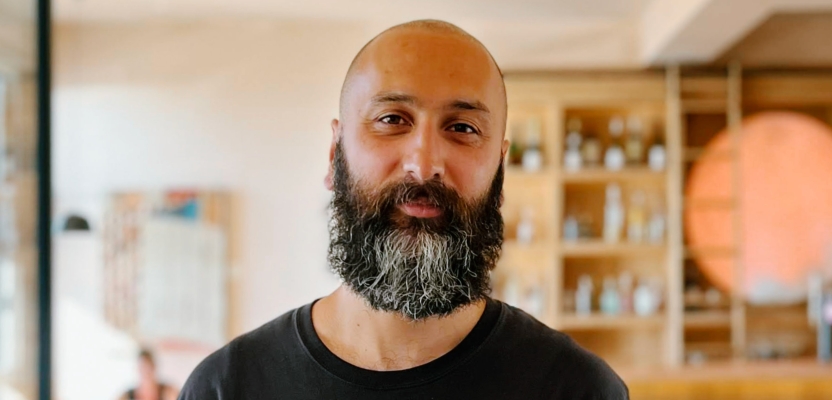For this week’s getting to know feature, we’ll be sitting down with Abb-d Taiyo, Co-Founder and Design/Production Director at design and impact agency Driftime.
A man that styles himself as a “mentor and ethical design enthusiast,” Abb-d stands behind his agency’s mission to work solely with progressive brands and businesses to “empower social, environmental and economic impact through ethical strategy and digital design.”
A bold mission statement, perhaps, but we’re talking to a very bold leader here.
Tell us a bit about your role! Is there a “typical” day?
My typical day always starts with responding to emails, as dull as that sounds. I’m one of those “zero inbox” people so I always make sure I respond to everyone and anyone where necessary. Having that ticked off, I start the rest of my day in confidence that I’ve provided my input where needed on the various moving parts of the business.
Following that, it’s all about engaging with the team. How are they doing? Do they need anything? Am I needed as support on projects? And so on.
Various meetings will follow with prospects, the team, mentees on certain days and engaging current clients and projects. My day-to-day role has largely shifted towards the vision side of the business, so rather than being too heavily involved in the nitty-gritty side of client work, internal and external relationship building is where my focus lays.
What was the biggest challenge in getting to your current position?
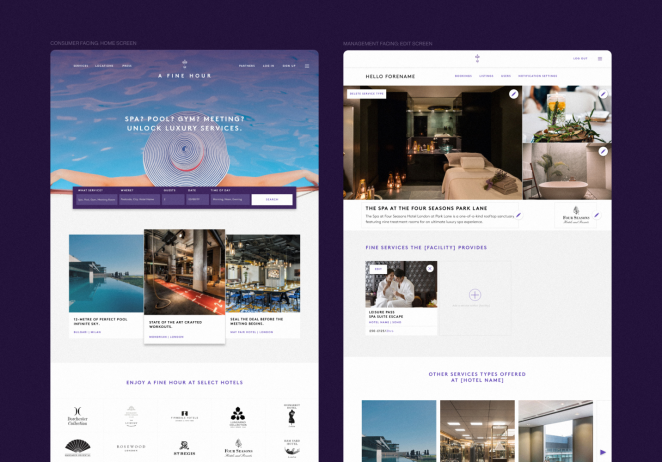
I would say my own re-education. I didn’t go to university, so you could say I didn’t take the ‘conventional’ route and learnt all my industry knowledge through hands-on experience, largely coming from a large agency background.
Starting my own, smaller scale agency meant I almost had to forget everything I knew from that world and re-learn, shifting from a ‘designer’ mentality to ‘impact and business’ which required a huge amount of work and focus.
This was particularly challenging around long-term impact and change, as I had to put a lot of work into understanding that side of things more deeply. It was about re-inventing myself from a large agency employee to a founder and advocate.
The other challenge was mitigating the common expectation that your business becomes a full-service agency. That was my background, so that’s all I knew. I had no education around taking ownership of a niche space.
Through trial and error, we’ve learnt to restructure and change the way we do things, operate, take accountability, and position ourselves into owning a niche space centred around design and impact.
What is your personal background and what role did it play in your career?
I didn’t follow the ‘traditional’ creative education route which perhaps shaped my ‘assume you’re wrong, until proven right’ mantra I often talk about with my team.
I also have a strong background in sports as a former US-scholarship level basketball player. This certainly gave me a competitive ‘fire’ early in my career, but interestingly I’ve come to feel I’m now quite the opposite, as through experience I lean more towards collaboration over competition.
I suppose you could say it’s ‘growing up’ to realise the importance of collaborating with other talented people. It’s been a strange journey of “I can do this" and "I can do that” towards now acknowledging others can do things better than I can, and so why not collaborate?
If we’re hoping to create real change and impact in the world, it makes more sense to work together than against each other.
What is your biggest career-related win? What is your biggest loss?
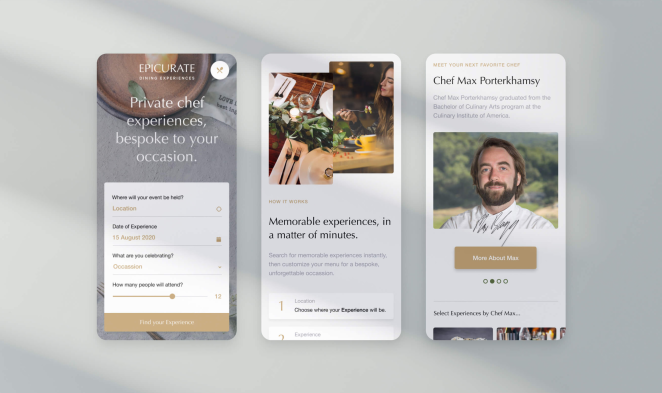
On the surface, we’ve done a great job of getting elements of recognition and building our reputation. For me however, the biggest wins are the more granular aspects of direct impact, such as mentorship.
Hearing a student or mentee in a similar position to me when I was early in my career, say our interactions have been super valuable to them in their career progression is what success looks like to me.
Realising your own journey and learnings can be valuable to someone else speaks more to me than any award - the idea of providing value and paying it forward.
Loss in itself we see as a huge learning opportunity, and therefor couldn’t pick a particular moment where we had a big that substantially impact us. That said, we have had multiple mishaps ands failures that have led to better processes, sharpened documentation, and clearer communication as a result.
One of the most obvious outcomes of this was our Onboarding Kit which we packaged to help others in creating that process and having safeguards.
Which individuals and/or agencies do you gain inspiration from? Do you have any heroes in the industry?
A hero of mine within the design world has always been Dieter Rams. Despite being an industrial designer which is out of our field, his design sensibilities and his philosophy around design is really nicely aligned to our values and how we look at design.
I’d encourage all to read his ‘10 principles of good design’. One I particularly resonate with is ‘design being invisible’. This is the idea that design is too often centred around engagement and getting attention. What we want to create are designs that are transparent yet empowering.
My interpretation of this is design that enables you to be better without compromise, and only ever noticeable when it’s taken away from you and the benefits it gives.
In terms of agencies, I’m always drawn to ones who approach things in unconventional ways. When an agency’s approach almost feels out of place, I want to know why. If you had two business people approach you with an idea, where one was in a suit and tie, and the other was in a cap and Led Zeppelin t-shirt, both of which speak the same in tone and language, I’d be more inclined to pay attention to the latter.
Their appearance, on the surface, instantly gives them a disadvantage, however it’s likely they’ve done a ton of work to get to where they are.
If you could go back to your teenage years, would you have done things differently? Do you have any regrets?

I wouldn’t say I have any regrets. I am a result of everything that’s happened. I have the mindset that, as painful as something might have been at the time, it’s been necessary to shape who you are and where you are today. Failure is life’s greatest teacher. Even now, everything I aim to learn I aim to fail at first.
If you weren’t in your current industry, what would you be doing?
I was super interested in architecture as a youngster, so likely something within that realm, but it was never something I pursued seriously. I had a scholarship in the USA as a Basketball player, so there was a time as a teenager where I had dreams and ambitions to pursue that as a career. Ultimately, I now believe I wouldn’t have been happy doing that.
What’s your one big dream for the future of the industry?
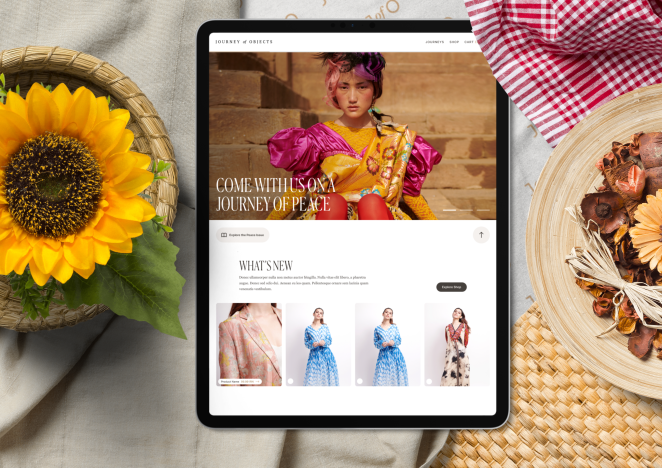
I’d like to see a changing mindset around design and what it represents, away from the idea of design being attention grabbing. My dream is for creative thinkers to be responsible with their work, less monopolistic, and produce work that creates real change in the world.
That’s what we’re constantly striving for. It’s nothing new. This isn’t an idea we’ve created, as seen with Dieter Rams amongst other deist figures, but we’d love to keep pushing this idea of invisible and impactful design further along.
What are your top tips for aspiring creative professionals?
Put in the work and don’t expect things to happen. This is something I’ve always believed in and I believe I’ve got to where I am because of it. You need to approach the industry with the mindset of creating your own luck, whilst not expecting things to fall into place exactly as you’d like. Importantly, it’s OK to fail and not have all the answers.
What are your top tips for other creative leaders?

Be open to collaboration. There are huge benefits to opening doors to other creatives and experts. The willingness to collaborate and be open to experimentation can have incredibly positive outcomes to design that serves people and the planet.
Our work with Only One is a beautiful case study of many amazing talented people collectively working together, creating real long-term impact in world. Through collaboration, we’ve been able to work towards stopping emissions from deforestation in Cambodia, fight ocean-bound plastic in India, rebuilding the reef in French Polynesia, and so much more.
When you think about your team, what is the thing that matters to you the most?
Their happiness and how fulfilled they are within their role is a huge priority. There needs to be genuine passion and focus behind the work they do, approaching their roles with a personal and emotional stake rather than seeing it as ‘just a job’.
Every single team member has a say on the clients we take on, for example, so we only approach projects knowing the entire team is on board and excited about the idea. Driftime as a business is the sum of everyone’s efforts, and we want it to serve our team and act as a vehicle towards change.
Do you have any websites, books or resources you would recommend?
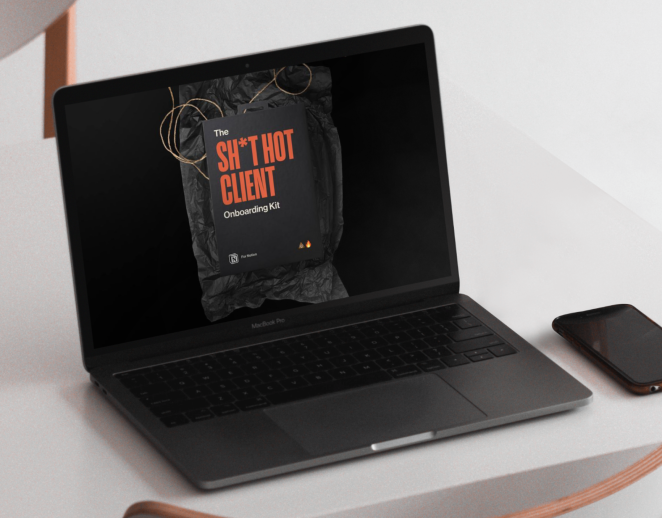
Leaders Eat Last by Simon Sinek
The Good Ancestor by Roman Krznaric
The Ethical Design Kit by Driftime
The Sh*t Hot Client Onboarding Kit by Driftime

